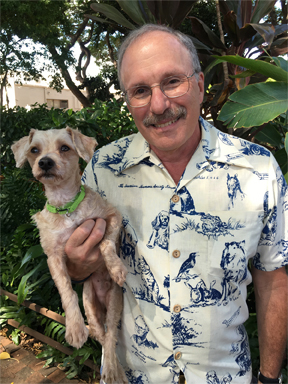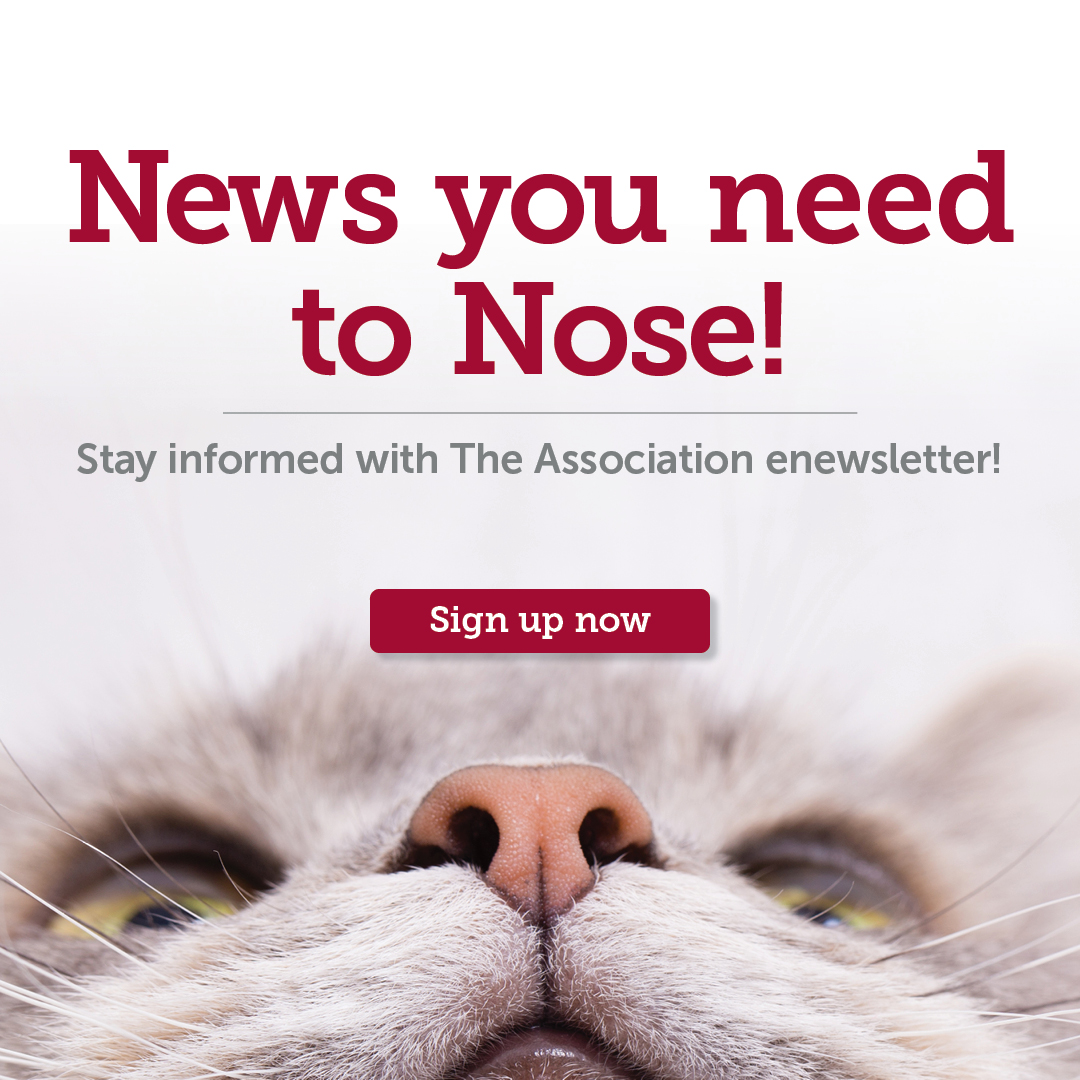News, ideas & inspiration from industry leaders

Member Spotlight: Get To Know Phil Arkow
You’re about to meet the real deal. A pioneer in naming and building awareness of the link between animal abuse and human violence, Phil Arkow shares his rich experience in over 45 years in animal welfare—and drops the mic with his motivational tip on why you should live your life like a dog.
Name: Phil Arkow
Member of The Association for Animal Welfare Advancement since: 1974 (“Yes, that’s right,” he says. “1974!)
Title & Organization: Phil Arkow, Coordinator, The National LINK Coalition
Q&A with Phil Arkow
The Association: Describe yourself in 3 words.
Phil Arkow: Passionate – objective – realistic
The Association: Describe the National Link Coalition in 3 words.
Phil Arkow: Refocusing the humane movement.
[Editor’s note: When you’ve been a member of the The Association since 1974, you get a pass on ‘the.’]
The Association: What does success look like for you? How do you know when you have made an impact?
Phil Arkow: Seeing spectacular positive changes.
The Association: Share one small victory you had this week—personally or professionally.
Phil Arkow: Having my article, “Humane Criminology: An Inclusive Victimology Protecting Animals and People” published in the Social Sciences journal. It synthesizes 40 years’ worth of musings about the origins and future of humane societies.
The Association: What’s one thing you’ve done to stay healthy and resilient this past year and a half?
Phil Arkow: Sadly, having to give up travel and in-person conferences and trainings.
The Association: Looking back at 2020, what’s one thing you started doing, either personally or professionally, that you plan to carry over this year and beyond? What’s one thing you wouldn’t miss doing?
Phil Arkow: I hope we all can get back to pre-pandemic systems of in-person conferences and meetings. Zoom works nicely, but there’s no substitute for face-time connections. People in this crazy business tend to think they’re alone; meeting colleagues dealing with the same issues everywhere gives them all “a shelter to cry on.”
The Association: You’ve given hundreds of presentations all over the world. Is there one that stands out, and why?
Phil Arkow: They all tend to blend together after a while, but the multi-city Link lecture tour of South Africa, the New Zealand SPCA, and the Canadian Veterinary Medical Association training in Newfoundland offered unique opportunities for exploration and discovery.
The Association: Studies have linked COVID isolation to increased domestic violence. Have you seen this, and what has this meant for your work at the National Link Coalition?
Phil Arkow: Yes, and I presented on this in November at the Canadian Violence Link conference. COVID has also impacted child and elder abuse, animal abuse and behavior, animal support services, and veterinary medicine.
The Association: How has the field of animal welfare changed since you began your career?
Phil Arkow: When I joined the field in 1973…
There were only 6 of us in the entire country doing humane education full-time. Today there’s an Association of Professional Humane Educators with over 350 members.
Back then, humane societies thought they had nothing in common with animal control agencies. Animal control agencies were not even allowed to join the American Humane Association, so we formed NACA. Today the field is called Animal Care & Control, and California and Colorado have wisely merged their state humane federations and animal control associations.
Humane societies fought with veterinarians over low-cost spay/neuter. Today there is a vibrant Association of Shelter Veterinarians, veterinary forensics is a recognized specialty to help advance animal cruelty prosecutions, and the One Health/One Welfare movements join veterinary and human medicine in recognizing The Link between animal abuse and human violence.
What was then called “pet therapy” was in its infancy; today Animal-Assisted Therapy & Activities are widely recognized as using the power of the human-animal bond to help people with special needs.
The Association: Thank you for reminding us of these positive changes. What about the public’s perception of shelters and how we talk about our work?
Phil Arkow: At a SAWA meeting in 1979, Bill Barrow predicted that unless humane societies and shelters undertook a marketing approach that emphasized how animal welfare helps people, they would be phased out of existence by more powerful human-oriented charities and by the emerging professionalism of animal control. More than 40 years later, we are seeing many shelters rebrand themselves as emphasized in what I found to be the three most compelling statements of this era:
- A 2007 study found, “Animal rights and family protection agencies often represent independent or marginally linked organizational structures. Consequently, services for the protection of humans and animals frequently lack integration and coordination.”
- A 2010 study commissioned by the ASPCA reported that “When it comes to cruelty to animals, both law enforcement and the public rank violence against humans above animal cruelty. Animal abuse is seen as a fairly important issue, but just can’t compete. Research demonstrating correlations between animal abuse and human violence has an effect on how seriously law enforcement and the public take animal cruelty issues.”
- And finally, a 2010 market research study observed: “The philosophy in the animal welfare community is switching to addressing human problems that underlie crises with animals. Animal shelters’ service philosophy is evolving to recognize that treating symptoms of animal welfare problems, such as animal homelessness, abuse and neglect, is only a stopgap solution: to be truly effective, underlying causes such as community and family dysfunction and violence must be addressed.”
The Association: Wow. Amazing to think we’ve been aware of this issue and have made slow progress, but still there is a belief that we should be focusing solely on helping animals, because some believe this isn’t a people issue. What words of wisdom can you share?
Phil Arkow: On leadership: Hire good people… and then get the hell out of their way.
And my favorite motivational tip: “Live your life like a dog. Bark less. Wag your tail more. Let people pet you. Take more time to play. And don’t poop on other people’s lawns.”
The Association: OK, that last one might win the prize! Final question…what’s the last book you read?
Phil Arkow: The Second: Race and Guns in a Fatally Unequal America by Carol Anderson.
More on Phil Arkow
Meet More Members
Get to Know Dani Eberhart, CVT
Get to Know Jack Cooper
Get to Know Kelly Bauer


